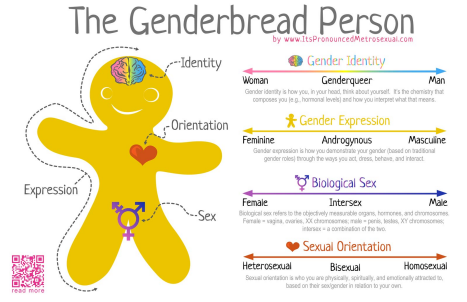About Gender Diversity Training

Hello. I am Abbie Berlin. I live in the greater New York metropolitan area. I am a mother of a transgender child. My motivation comes from my trouble accessing healthcare and education. My lessons are based on the Teaching Transgender Tool Kit by Eli R. Green and Luca Maurer. In the medical field, I’ve had issues such as disrespect, hostility and invasive questions which led at times to not giving accurate medical history due to negative expectations of being treated poorly. There haven't been ways to share sensitive information privately with providers by the families or staff. This has led to issues with notification and getting accurate information in the patient’s medical record. There have been issues with my child’s medical history being shared with medical personnel that were not involved with her which compromised her privacy along with her personal safety.
And, I have found that doctors asked questions that were not relevant to medical care. I’ve been inappropriately asked to educate medical personnel about my child’s personal history of being transgender. All doctors need to take responsibility for knowing what the common medical and surgical treatments are for transgender patients and the specific ways that this can affect their medical care. I’ve had similar experiences in daycares and schools.
In my presentations, we talk about what transgender and nonbinary mean as well as other words and ideas related to gender diversity. We also talk about how you can build trust with your transgender and nonbinary patients and their families.
We will explain the following terms:
● s-xual orientation
● biological s-x
● s-x assigned at birth
● gender identity
● gender expression
● gender non-conforming
● transgender
● nonbinary
● inters-x

Transgender people may or may not have had gender confirmation surgery. Some can’t afford it or don’t have insurance. Some are too far from a hospital and others don’t want to.
People are really focused on genitalia. There are other surgeries that transgender people have besides genital surgery. Many transgender women want surgery to reduce their Adam’s Apple or have breast implants. Many transgender men might want to remove their breasts. Many transgender women have to take a testosterone suppressant and something to increase their female hormones. Its similar for transgender men.
Transgender kids don’t have surgery. They do have puberty blockers so that they don’t go through the wrong puberty. Puberty blockers give them time to figure out their identity.
Transgender people are in different stages of their transition. If you are not sure about their gender, just go with the gender they are presenting. If you’re not sure, ask for their pronouns.
In order to get a birth certificate changed for gender, a doctor has to write a letter that says that the person has transitioned to male or female.
Maybe you can tell that someone is transgender. However, there are many transgender people who are not obviously transgender. You wouldn’t know if they passed you on the street.
Nonbinary is not a new concept. People recently started talking about nonbinary but people have been feeling this way for a long time. Some people are threatened by new ideas and that the world is changing in a way they don’t like.
Doctors choose the sex assigned at birth for a baby even if they can’t tell.

In my presentation, we will work on building your cultural competency around issues that transgender and nonbinary people face around accessing medical care. You will use your cultural competency to decide what you will do when different situations arise.
Discrimination adversely affects the mental and economic well-being of many LGBTQ Americans. Many transgender people believe they’ve been mistreated in the medical system. Here are some statistics from the Center for American Progress 2020 survey.
- 28% of transgender individuals reported postponing or avoiding needed medical care when they were sick or injured due to disrespect or discrimination
- 33% of transgender people reported having to teach their doctor about transgender individuals in order to receive appropriate care.
- 38% of transgender Americans said that their doctors or other providers have been visibly uncomfortable with them because of their gender identity
- 18% said a doctor or other health care provider refused to see them because of their actual or perceived gender identity
- 20% reported doctors or providers had been physically
rough or abusive
The reason I’m showing you these statistics is so you can be more aware of the potential for misunderstandings. These are their past experiences that they are bringing with them into your office. This survey doesn’t give any data about how many times these negative experiences have happened to the same person. Also, friends talk to each other. Everyone can feel the effects of everyone else’s negative experiences. The negative experiences accumulate and can feel traumatic. People’s negative experiences affect their future perceptions. This affects how they interpret your nonverbal cues.
Doctors may think this does not happen. You still have to fight against these negative expectations regardless of what happened. Here’s the unwritten belief from the patient’s point of view. You are the medical professional and you are supposed to know everything for the patient. Doctors don’t know all the medical issues. Transgender and nonbinary patients expect to be disrespected either because a doctor doesn’t know how to talk to transgender patients, or the doctor is uncomfortable or the doctor doesn’t want to treat them.
Inappropriate behavior is causing transgender and nonbinary patients to put off necessary medical care. We’re going to use personal stories to see how words and actions can affect patient trust.
